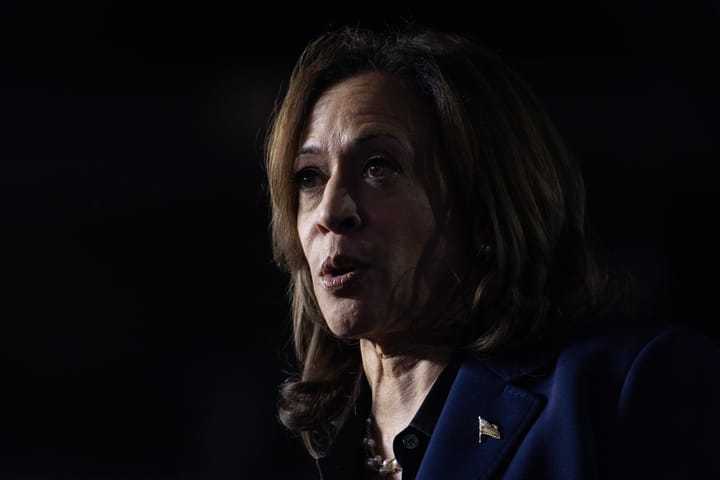Arizona Democrat Ruben Gallego announced on Monday that he is running for Senate in 2024, possibly against centrist Independent Sen. Kyrsten Sinema. In an announcement video posted to Twitter, Gallego speaks about growing up poor and being raised by a single immigrant mother, and how he “stepped up” despite those challenged to be a father figure for his younger brothers. Elected to Congress in 2014, Gallego has risen the ranks of the Democratic Party and has chaired two subcommittees: the House Armed Services Subcommittee on Intelligence and Special Operations, and the Natural Resources Subcommittee on Indigenous People of the United States.
Gallego is generally regarded as a progressive Democrat. He is a member of the Medicare for All Caucus and the Congressional Progressive Caucus, and he has a 97% lifetime voting score on environmental issues from the League of Conservation Voters. However, there is one issue on which Gallego has repeatedly broken rank with his fellow progressive caucus members.
In May 2020, dozens of Progressive Caucus members signed a letter to House Armed Services Committee Chairman Adam Smith and Ranking Member Mac Thornberry urging them to authorize a lower level of funding for the annual Department of Defense budget. “We must remain focused on combating the coronavirus and not on increasing military spending that already outpaces the next 10 closest nations combined,” the members wrote in the letter. Gallego was not among the progressives signing the letter. Months later, the House voted on an amendment to the Defense budget authorization bill from Progressive Caucus Co-Chair Mark Pocan that would have lowered the Pentagon’s budget by 10%, roughly $74 billion, and redirect it to a a grant program for health care, housing, and other expenses in cities with high levels of poverty. Gallego voted against the amendment.
Over the next two years, Gallego voted two more times against Democratic amendments to cut the Department of Defense budget by 10%, once in September 2021 on an amendment offered by Alexandria Ocasio-Cortez, and again in July 2022 on an amendment that was proposed by Rep. Barbara Lee. Over the period between the Pocan and Lee vote, more members of Congress got behind the idea of a 10% Pentagon budget cut, and the 2022 Lee amendment ended up winning support from a majority of House Democrats and 14 Republicans. Still, Gallego was a “no.”
Spending on the Department of Defense makes up about 13% of the federal budget and accounts for about half of the discretionary spending that Congress doles out each year. In 2023, Congress passed a record large Pentagon budget authorization of $858 billion. Many progressives believe that reducing the Defense Department’s budget is essential for freeing up funding that could be used for things like infrastructure investments, education programs, and subsidized child care.
It’s unclear why Gallego opposed the amendments to reduce the Pentagon’s budget—his campaign did not reply to a request for comment—but a review of his campaign fundraising history reveals the votes were in line with the financial interests of some of his biggest donors.
Gallego’s top corporate PAC donor over the course of his congressional career has been Honeywell International, a North Carolina-based multi-industry conglomerate that is among the largest U.S. defense contractors. Honeywell’s PAC has donated $74,000 to Gallego’s campaign and leadership PAC, according to Federal Election Commission records. In 2020, Honeywell was awarded a Department of Defense contract worth up to $3.5 billion for production, sustainment and engineering services in support of a new Air Force navigation system.
Another of Gallego’s biggest donors is Raytheon, the company that pulls in the second most revenue from Defense contracts, according to Defense News. Raytheon’s PAC has given Gallego’s campaign and leadership PAC $41,500. Other large defense contractors whose PACs have made substantial donations to Gallego include Northrop Grumman ($36,500). General Atomics ($30,000), and General Dynamic ($29,500). Since 2015, Gallego has received $267,000 from various defense company PACs, according to OpenSecrets.
While Gallego hasn’t voted to reduce the Pentagon budget, in multiple years he got language added to the National Defense Authorization Act that requires the U.S. to retain a minimum level of troops in certain foreign countries. In 2018, Gallego introduced an amendment to the NDAA that was adopted requiring that U.S. active duty forces in South Korea not fall below 22,000 troops without a certification by the Secretary of Defense. The next year, he secured an increase of that number to 28,500 American troops. In 2020, he secured passage of a similar amendment requiring the U.S. to have at least 9,500 troops stationed in Germany.
Another issue Gallego has championed during work on the NDAA has been to stop the Air Force from retiring any A-10 Warthog fighter jets. In early 2020, the Air Force notified Congress that it was planning to retire some older Warthog jets, a plan that was strongly criticized by Gallego during a committee hearing. In response, Gallego added a provision to the NDAA that his committee debated that summer that halted the Air Force’s plans to retire the planes. Since then, Northrop Grumman was awarded a $186 million contract to extend its engineering support for the aircraft for another ten years, and Raytheon won a $46 million contract to modernize the A-10’s outdated avionics system.
Asked recently by Defense News about House Republicans’ deal to reduce Defense spending made around the election of Rep. Kevin McCarthy (R-Calif.) as speaker, Gallego said the budget could go down. “You don’t need to take a meat cleaver to the defense budget; you should take a scalpel to it,” Gallego said. “There’s always, I think, some legacy platforms that could be retired.”
The hawkish pro-Israel lobby has also embraced Gallego and in the 2022 election cycle began providing him substantial campaign funding. The PAC of the American Israel Public Affairs Committee (AIPAC) gave Gallego $7,900 and earmarked individual donations for him totaling $18,800. Another pro-Israel group called Pro-Israel America PAC, which acts as a conduit for contributions and has ties to AIPAC,collected $20,800 in donations from individuals for Gallego in the 2021-22 cycle.
Gallego has also directed money to a super PAC deeply tied to AIPAC that has spent millions of dollars to oppose the elections of progressive Democrats who they believe have not been sufficiently supportive of financially aiding Israel in its conflicts with Palestine without any conditions. Gallego is the chairman of the Committee for Hispanic Causes’ BOLD PAC, which since 2020 has donated $170,000 to a super PAC called Democratic Majority for Israel, or DMFI. Run by former AIPAC officials, DMFI has become a powerful force in Democratic primaries in the past two election cycles. The PAC has made $15 million of independent expenditures since 2020, with its biggest targets of negative advertising having been Bernie Sanders, Nina Turner, Jamaal Bowman, and Marie Newman.



